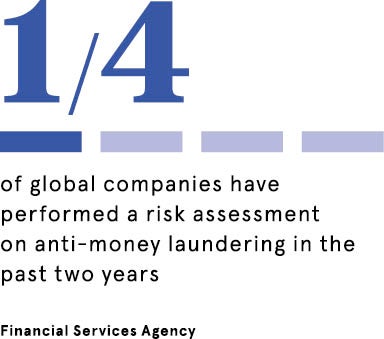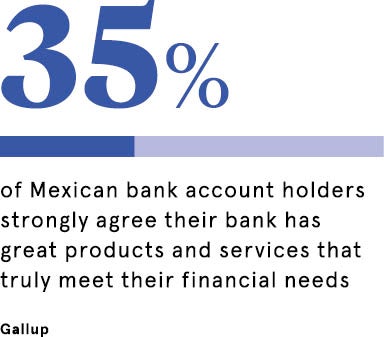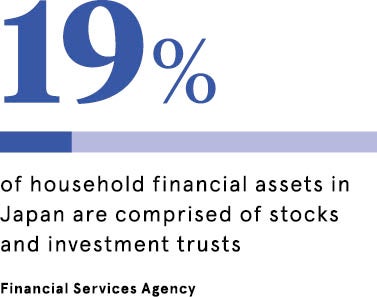01 4G Capital, Kenya
Lack of access to finance is a major issue for entrepreneurs and small businesses across Africa. According to a report by charity Graça Machel Trust, 71 per cent of female entrepreneurs in East Africa had to use personal savings to fund their startups, due to an inability to raise capital. Many Kenyan banks are hesitant to lend to smaller, untested businesses, because of a government cap that limits the interest charged on loans.
4G Capital, a Kenyan microfinance startup, has partnered with Canadian blockchain securities exchange Finhaven to launch the continent’s first tokenised bond issue using cryptocurrency. By offering these tokens to investors, the company hopes to raise $10 million and bypass the high cost of conventional bond issuances.
Thanks to the underlying blockchain technology, 4G will be able to effectively raise capital and scale operations. This unique partnership will bring much-needed US dollars into Kenya and provide capital for small and medium-sized enterprises (SMEs), with Finhaven saying investors will receive the same level of protection as they would expect when investing in a traditional bond.
If the issuance proves successful, 4G Capital is on track to lend $40 million over the next 12 months alone and directly impact more than one million people through its services by 2020. The company also provides financial and business training to SMEs, alongside working capital, in a bid to help end the poverty cycle that threatens low-income Kenyans.
02 Digital AML, Denmark
Denmark consistently ranks as one of the most financially transparent countries in the world and, according to the Corruption Perceptions Index, has been in the top four least corrupt countries for more than 20 years. Yet, a number of recent cases involving major Danish financial institutions have highlighted the challengers this country still faces around money laundering and financing terrorism.
 Danske Bank, Denmark’s biggest lender, admitted that money laundering and other illegal practices had been discovered around payments from Azerbaijan’s ruling elite and Danish newspaper Berlingske reported that Nordic bank Nordea’s Danish branch was used to transfer money to tax havens.
Danske Bank, Denmark’s biggest lender, admitted that money laundering and other illegal practices had been discovered around payments from Azerbaijan’s ruling elite and Danish newspaper Berlingske reported that Nordic bank Nordea’s Danish branch was used to transfer money to tax havens.
Danish startup Digital AML was founded in 2016 to ensure that companies can effectively meet the requirement of the 2017 Money Laundering Act and reduce incidences of money laundering. A key part of the legislation requires Danish businesses to know exactly who their customers are and be able to verify their identity. Digital AML links publicly available data with customer data, such as a unique corporate registration number, to confirm the customer is who they say they are.
The solution also continuously monitors changes in the public data and if there are any signs that a company is involved in either money laundering or terrorist financing, Digital AML warns its customers, giving them the ability to investigate further. Before this, companies would have needed individually to check customer data against public data, such as the European Union sanctions list and politically exposed person lists.
03 Albo, Mexico
Traditional banks in Mexico have found it difficult to engage with their customers and provide top-level service. According to a Gallup survey, only 35 per cent of Mexican bank account holders say they strongly agree that their bank has great products and services that truly meet their financial needs, leaving innovative fintech companies well positioned to fill this gap.
 Poor service isn’t the only challenge facing bricks-and-mortar banks as less than half of Mexicans have a bank account, with many unlikely to open one soon, partly due to the low number of physical bank branches and because it takes an average of around 42 minutes for rural Mexicans to travel to a branch.
Poor service isn’t the only challenge facing bricks-and-mortar banks as less than half of Mexicans have a bank account, with many unlikely to open one soon, partly due to the low number of physical bank branches and because it takes an average of around 42 minutes for rural Mexicans to travel to a branch.
The Mexican government launched a financial inclusion strategy in 2016, which highlighted the importance of leveraging technology to support unbanked citizens. Albo, a smartphone app offering banking services, gives users the ability to make payments with a connected Mastercard in-store and online, and see transactions in real time.
The benefits of solutions such as Albo are significant in a country like Mexico, where smartphone ownership rose to 35 per cent in 2015. For example, if a user forgets their PIN, instead of having to make a lengthy trip to a branch or wait days for a new number to be posted, they can instantly change it within the app.
Fintech’s full potential in Mexico is expected to be seen in a decade, with fintech startup accelerator Finnovista forecasting these solutions will control close to 30 per cent of the overall banking sector in the country.
04 WealthNavi, Japan
Japan is a nation of savers, but unlike many Western economies, cash and bank deposits are preferred far more than investments. In Japan, stocks and investment trusts represent only 19 per cent of household financial assets, according to the country’s Financial Services Agency.
 A lack of comprehensive financial education is believed to be partially responsible for the aversion to investment products, with a new range of robo-advisers looking to make it easier for people with limited financial knowledge to invest.
A lack of comprehensive financial education is believed to be partially responsible for the aversion to investment products, with a new range of robo-advisers looking to make it easier for people with limited financial knowledge to invest.
WealthNavi, Japan’s largest robo-adviser service, asks users a simple set of questions about their financial goals and the level of risk they are willing to accept, then a sophisticated artificial intelligence algorithm invests their capital without human intervention. Throughout the investment period, users can monitor their funds on their smartphone and see simulations of where the investment should be over a number of years.
Fewer than half of Japanese people, who are aged 20 to 29 and live alone, have any investments or savings, creating major challenges for many in this group when they approach retirement age. The introduction of online and mobile platforms that facilitate the quick and undemanding investment of relatively small amounts of money will appeal to digital-native millennials.
The low cost of services such as WealthNavi is showing Japan’s savers that investments are not just limited to wealthy individuals or those with in-depth financial expertise and it only takes minutes to agree a long-term deal.
05 Paystack, Nigeria
African economic powerhouse Nigeria has a thriving ecommerce sector that is set reach annual revenues of $75 billion by 2025. But the prevalence of cash-on-delivery orders and a complex payments ecosystem has restricted the growth of this industry and left many smaller businesses unable to establish a presence online.
Lagos-based startup Paystack is working to remove barriers stopping African companies from accepting online payments, through products such as the Paystack Payment Page. Thanks to the simplicity of this solution, even companies that don’t have a website can create a secure ecommerce checkout link in seconds and receive payments from around the world.

Paystack powers ticket payments for Afropolitan Vibes, Lagos’ largest live music festival
Tools like this are especially vital in Nigeria, where the informal economy accounts for 65 per cent of GDP. Merchants across the continent are able to share their own payment pages on many different platforms by embedding the link into WhatsApp Stories, sharing via SMS or even including it in their Instagram profile.
Only around 1 per cent of transactions in Nigeria are currently online, but Paystack hopes to power a range of innovative companies that will drive forward not just ecommerce, but also the next generation of mobile-based saving accounts.
“These are only a few of the ways Paystack has deployed fintech innovations to solve local issues. Such innovations are why Paystack has grown quickly in only two years to power 15 to 20 per cent of all online payments in Africa’s largest economy. And we’re only getting started,” says Paystack chief executive Shola Akinlade.
01 4G Capital, Kenya
02 Digital AML, Denmark






